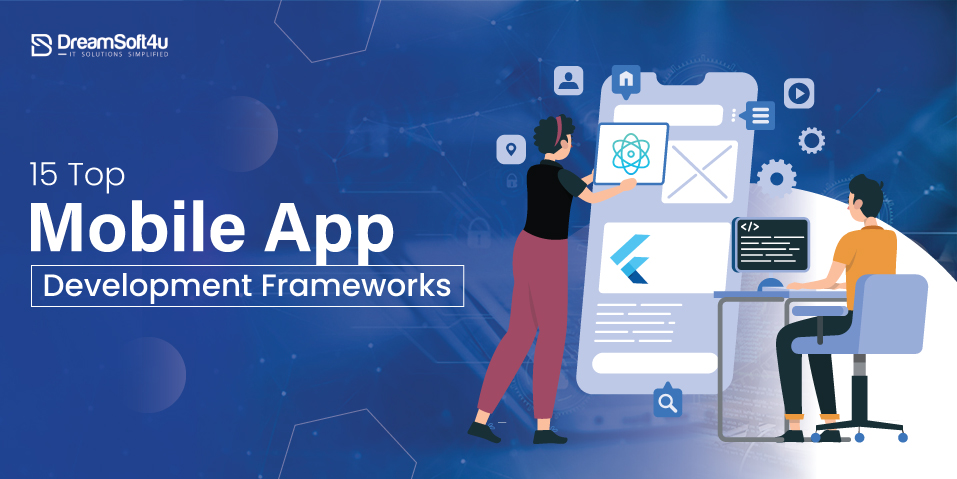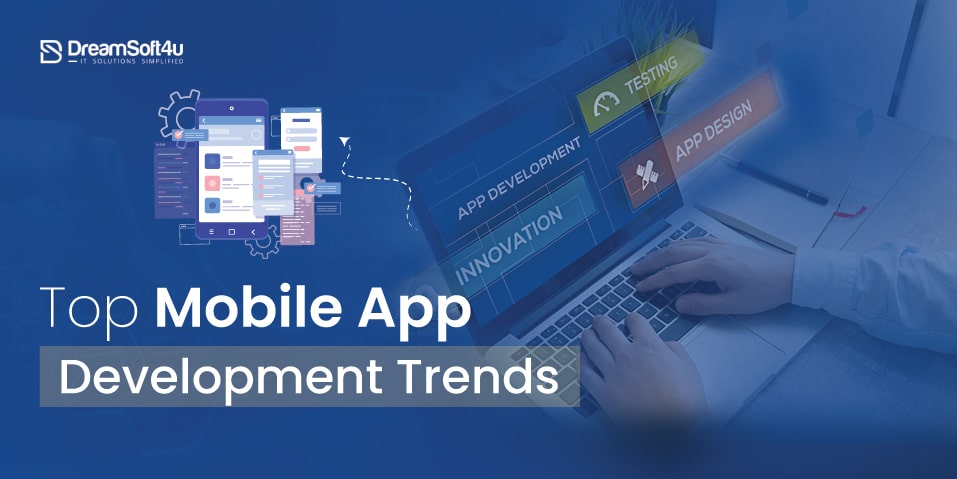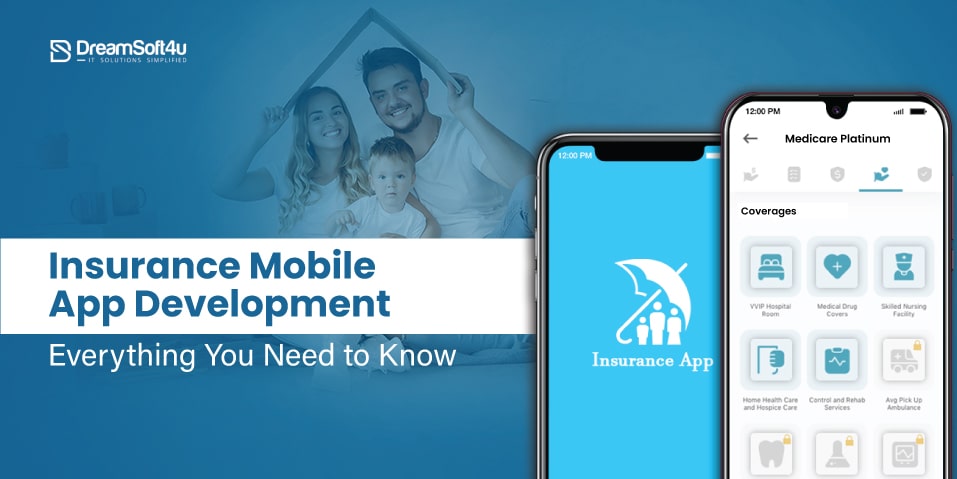The mobile app development world has grown exponentially recently. Mobile app development company are faced with an abundance of options. However, so many options can be confusing. It can take time to determine the best-suited mobile app development frameworks for a specific project.
To assist with this decision, we’ve compiled a list of the top 15 mobile app development frameworks for 2026. This guide will help you find the perfect tool for your next big project. From popular open-source platforms to cross-platform development tools, we have covered all.
Table of Contents
ToggleIntroducing the 15 Best Mobile App Development Frameworks for 2026
1. React Native
Developed by Facebook, React Native is among the most popular cross-platform frameworks. It lets programmers use the same code to make apps for iPhone and Android phones. React Native app development can save significant time and resources compared to developing separate apps for each platform. React Native also has a large and active community, making it easier to find support and resources.
Apps using React Native: Facebook, Instagram, and Airbnb are examples of React Native.`
2. Flutter
Developed by Google, this framework uses the Dart programming language. It is known for its fast development cycles and high performance. It also allows for the creation of beautiful, customizable, and high-performance mobile apps.
Apps using Flutter: Google Ads and Alibaba are examples of Flutter.
3. Xamarin
Developed by Microsoft, this framework allows developers to create mobile apps for both iOS and Android using C#. These cross-platform frameworks support code sharing across different platforms and have a large community of developers.
Apps using Xamarin: Olo, FreshDirect, and JustGiving are examples of Xamarin.
4. Ionic
Built on Angular, this framework is packed with power. It allows the creation of high-performance mobile apps using programming languages such as HTML, CSS, and JavaScript. It also has an extensive library of pre-built components and a strong community of developers.
Apps using Ionic: MarketWatch and Pacifica are examples of Ionic.
5. PhoneGap
Developed by Adobe, this framework allows developers to create mobile apps using web technologies such as HTML, CSS, and JavaScript. It uses a “write once, run everywhere” approach, allowing for the reuse of code across different platforms.
Apps using PhoneGap: Wikipedia and TripAdvisor are examples of PhoneGap.
You May Also Like:
6. NativeScript
This framework allows developers to build native mobile apps using JavaScript, Angular, or Vue.js programming languages. It has a small footprint and is known for its fast performance. It also provides a wide range of pre-built components that can speed up the development process and improve the app’s performance.
Apps using NativeScript: Untappd and Sworkit are examples of NativeScript.
7. Cordova
This framework allows mobile app development services to create mobile apps using web technologies such as HTML, CSS, and JavaScript. It provides a simple API for accessing native device features and has a large community of developers.
Apps using Cordova: Wikipedia and Salesforce are examples of Cordova.
8. PWA (Progressive Web App)
PWAs are web apps that can be accessed through a browser but provide a native app-like experience. They are fast, reliable, and can work offline. They are suitable for simple apps with less complex features and UI.
Apps using PWA: Twitter Lite, Pinterest, and Flipkart are examples of Progressive Web App.
9. Kotlin Multiplatform
Kotlin was designed to improve some of Java’s shortcomings. For example, it has built-in null safety. It helps prevent null pointer exceptions and makes the code more robust.
Kotlin is considered to be more expressive, concise, and safe than Java. It reduces the amount of code needed to be written and makes it easier to maintain and improve. Kotlin has a growing community of developers and is supported by Google. All the reasons why many developers believe it to be the best framework for mobile app development.
Apps using Kotlin Multiplatform: Gradle and Evernote are examples of Progressive Kotlin Multiplatform.
10. Xamarin.Forms
This is a UI toolkit for building cross-platform mobile apps using Xamarin and the C# programming language. You can use a single codebase and share many codes across different platforms.
Apps using Xamarin.Forms: Olo and FreshDirect are examples of Xamarin.Forms.
DreamSoft4u Since 2003
Get your free quote by the top professionals.
11. Unity
Unity is a cross-platform game development engine. It allows developers to create 2D, 3D, AR, and VR games and experiences. You get a visual scripting system, physics engine, and multiplatform support.
Unity has many tools and options, making it a popular choice for game developers. Some of the tools include making the game’s actions without writing code, physics to make the game’s movements look realistic, and the ability to make the game work on many different types of devices.
Apps using Unity: Angry Birds 2, Pokemon Go, and Temple Run are examples of Unity.
12. Unreal Engine
Unreal Engine is a game engine developed by Epic Games. It is a collection of tools and resources developers can use to create video games, simulations, and other interactive 3D applications. Unreal Engine is known for its powerful graphics capabilities and ability to create highly detailed and realistic environments. It also offers many features, including a visual scripting system, physics engine, and multiplatform support.
Apps using Unreal Engine: Fortnite, PUBG, and Gears of War are examples of Unreal Engine.
13. Appcelerator
This framework allows developers to create mobile apps using a variety of programming languages, including JavaScript, Ruby, and PHP. It also has an extensive library of pre-built components and a strong community of developers.
Apps using Appcelerator: GetTaxi and NBC Sports are examples of Appcelerator.
14. PhoneGap Build
This cloud-based service allows developers to create mobile apps using web technologies such as HTML, CSS, and JavaScript. It allows for code reuse across different platforms and has a large community of developers.
Apps using PhoneGap Build: Wikipedia and TripAdvisor are examples of PhoneGap Build.
15. Monaca
This framework is built on Apache Cordova and allows for creating mobile apps using web technologies such as HTML, CSS, and JavaScript. It has an extensive library of pre-built components and supports cloud-based development and debugging.
Apps using Monaca: Line and GREE are examples of Monaca.
Best Frameworks to Create Augmented Reality (AR) Applications
Mobile app development services are several frameworks for creating augmented reality (AR) applications.
Vuforia: This is one of the most widely used AR development frameworks. Furthermore, it supports various platforms and devices and has an extensive library of pre-built AR components. It has image recognition, object recognition, and SLAM (Simultaneous Localization and Mapping).
ARKit: Developed by Apple, this framework is specific to iOS. It allows for the creation of AR experiences for iPhones and iPad. It includes image recognition, 3D object tracking, and scene understanding.
ARCore: Developed by Google, this is similar to ARKit. However, it is specific to Android devices. It includes motion tracking, environmental understanding, and light estimation.
Unreal Engine: Another popular game development engine that supports AR development. Like Unity, it has a growing community and offers many tools and resources. In addition, it also includes built-in ARKit and ARCore integration.
Hiring a Mobile App Developer
Do you want the best cross-platform app development?
If yes, then you need to hire mobile app developers. Hiring a mobile app developer is, of course, always challenging. But it is an essential task if you want a perfect app.
- First, you need to determine what type of app you need. If you are looking for the best cross-platform app development, you must look for a developer specializing in cross-platform app development.
- Secondly, you need to evaluate the developer’s experience. It would help if you asked the developer to provide samples of their previous work. This will give you an insight into their expertise and experience.
- Thirdly, you need to check the developer’s portfolio. This will give you an idea of the types of projects they have worked on and the complexities they have handled. Also, check the developer’s technical expertise and knowledge. Ask them questions related to the latest technologies used in mobile app development.
- Finally, you need to estimate project deadlines and costs. Ask the developer for a quote and compare it to other mobile app development companies.
Once you have considered all the factors, you can make an informed decision and hire the right mobile app developer for your project.
Final Words
Mobile app development is rapidly evolving, with new frameworks and tools emerging yearly. The mobile app development frameworks listed in this blog post represent some of the top options available in 2026 for building high-performance, feature-rich mobile apps. Each framework has unique features and capabilities, making it suitable for projects and development teams.
Ultimately, the best framework for your project will depend on your specific requirements and development goals. Hence, it’s always essential to research and experiment with different frameworks to find the best fit for your project.
As a leading mobile app development company, we offer IT consulting services to help businesses identify and implement the software tech stack for their business. If you need any help choosing the right framework, we are more than happy to answer all your queries. Schedule a meeting with one of our mobile framework experts now.
FAQs
Q1. What is your development process?
Our development process is agile and collaborative. From ideation to implementation, every stage has a well-integrated feedback look. Your needs and concerns are addressed throughout and all changes that you suggest are implemented irrespective of the stage.
Q2. What if need an MVP first and the complete product later?
Yes, we have you covered on that front as well. Our team will quickly create an MVP for you based on your needs and requirements. The MVP will be ready to launch and once you have the necessary feedback from the app users, we can move forward with the final product development.
Q3. Can I get a free quote for my project?
Yes, we do provide a detailed development roadmap along with a project cost estimate. To get one, simply fill out this form, and our team will schedule a meeting. We will collect all your requirements, analyze them, and share a detailed timeline with an estimate.
Q4. Can you help me choose the right framework for my mobile app?
Not just framework, we can help you hire the right team, the right tech stack, and more for your app development project.
Q5. Do you sign an NDA?
Yes, NDA is part and parcel of all our projects. We prioritize our client’s privacy and business data security.



















